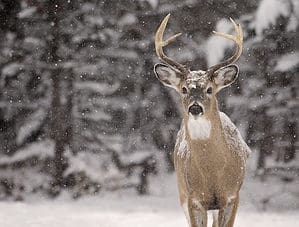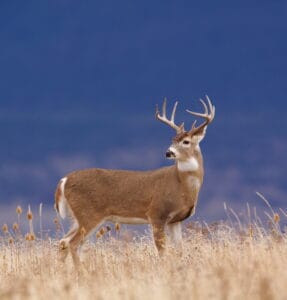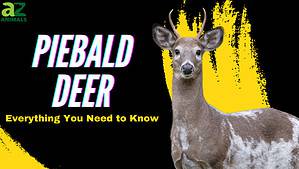Arizona is home to two species of deer: white-tailed deer and musk deer. White-tailed deer are found throughout much of the state, but mule deer are only found in some northeastern areas. Both species require entering a drawing to win the right to hunt them. Only a certain number of deer can be taken each year – which is determined by herd size estimates each year.
Despite having a drawing, Arizona is not a complicated state to hunt in. Their guidelines are pretty cut-and-dry in most places. Furthermore, the regulations and seasons are similar (if not identical) across the state.
Therefore, if you’re a new or old hunter, Arizona can be a refreshing place to hunt. Below, we’ll look at some of the most critical requirements, explain how their drawings work, and dig into their hunting rules.
Arizona Deer License Requirements
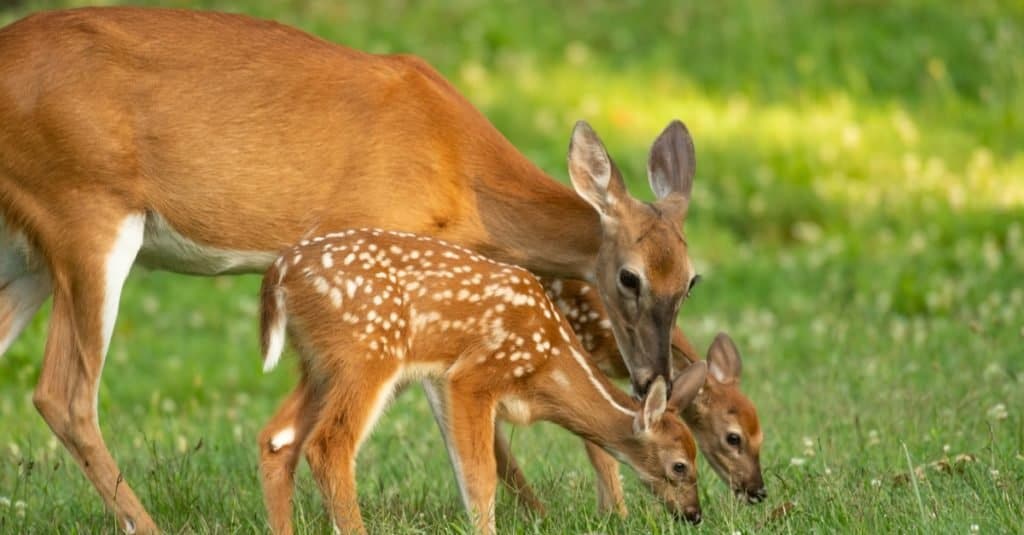
While not legally required, it is recommended to operate under a “first come, first serve” mentality while hunting deer.
©Tony Campbell/Shutterstock.com
To hunt deer in Arizona, everyone needs a hunting license. You can choose a hunting license or a combination license, including fishing. Licenses do differ in a few ways, though. In total, there are four different license types.
The most straightforward license is the “general hunting” license. This allows the taking of practically any open animal in the state. However, you’ll also need a tag for big game animals and certain bird species. Only residents may purchase this license. Non-residents must choose one of the other types.
The Combination Hunt and Fish license allows you to do just that – hunt and fish. Therefore, it works well for those who want to fish and hunt. It is cheaper to purchase the combination license than each license separately.
There is also a Youth Combination Hunt and Fish license. Only youth between the age of 10 and 17 may purchase this license, which is heavily discounted. It costs the same for residents and non-residents. You still need a tag for deer, though it is cheaper for youth, as well.
You can also purchase a short-term combination hunt and fish license. This license is not valid for drawings, which includes most deer hunts. You must also pay for each day your license is active. Therefore, this license isn’t practical for most individuals. It quickly becomes more expensive than the general hunting license.
Permits
You’ll also need a permit for deer hunting. You’ll need one permit for each deer that you harvest. The price is based on whether or not you’re a resident or non-resident, as well as your age.
To get a permit, you’ll need to go through the application and drawing procedure. There is an application fee. Then, you’ll only be able to purchase a permit if you win the drawing. The application fee depends on if you’re a resident or a non-resident.
If you wish to transfer your tag, this is possible. There is a small transfer fee, and the state will not reimburse the cost after you purchase it.
Luckily, you do not need a stamp for deer hunting.
The PointGuard System
You can surrender any tag that you win prior to the start of the season. This allows you to add points to your license, increasing your chance of winning a tag later on. The regular PointGuard system is $10 a species and can be purchased online through the portal.
For $25, you can use the PointGuard Plus system. Basically, this allows you to have any bonus points reinstated for the big game species you won. You can purchase this as soon as you win the drawing, allowing you to increase your chances of winning the following year.
You’ll also get priority for any other tags that are surrendered that year. So, if you win a permit in a hunt you don’t really want, you may want to go this route to potentially get a surrendered tag.
When you surrender your tag, you do not get a refund. However, any points you had are reinstated. You must surrender the tag before the hunt begins.
You may also surrender your tag to a qualifying nonprofit.
Ethical Hunting Considerations
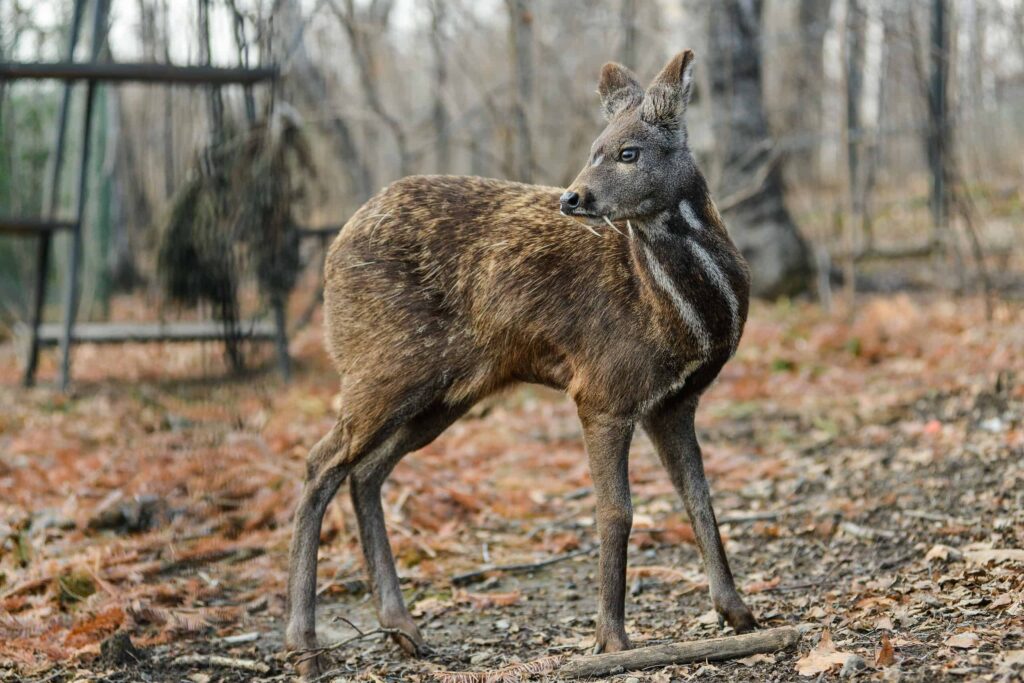
The “general hunting” license allows the taking of practically any open animal in the state.
©Suvorov_Alex/Shutterstock.com
While not necessarily laws, there are several regulations that will affect how you hunt. These regulations won’t necessarily land you with fines, but it is common courtesy, and they should be seriously considered. Excessive problems may lead to these being turned into laws later.
Landowners and Permittees
You should always ask permission before hunting on private land. Be courteous to the owner. Damaging property and similar complaints can lead to misdemeanors and fines – even if you have permission to hunt there.
Be sure to return all gates to how they were. Report any damage to the fencing or anything else the owner may need to know about. Many of these properties are large, which means that repairs can go unnoticed for a while.
Drive only on existing roads. Driving offroad can damage the property, which may lead to fines. Leave livestock undisturbed, and be sure not to hunt near livestock. Identify your target before you shoot, especially if you know livestock is there.
Waterholes
Waterholes on public land are available for everyone to hunt around free of charge. You cannot camp within one-fourth of a mile from a natural or man-made waterhole, as this may lead to wildlife not accessing the waterhole.
You should yield to any hunter that is there before you. While not legally required, it is recommended to operate under a “first come, first serve” mentality. If someone is there first, it is not recommended to hunt with them.
You cannot place a sign or notice near the watering hole to “claim” it. They are open to everyone and cannot be claimed without the hunter physically being present. You can not claim the area by leaving a tree stand there, either.
Do not interfere with anyone else’s hunt or campsite. If someone is in the watering hole area, leave quietly.
Non-Hunters
Non-hunters have the same right to use the land as hunters. Therefore, you should expect to find non-hunters when hunting. Transport animals discreetly. Do not leave the remains behind, as you don’t want non-hunters to come across it. Use tasteful photographs when you hunt, and don’t take pictures of anyone who you don’t ask permission from.
Ethics with the Quarry
Only use well-placed shots that you expect will kill the deer. Don’t shoot to injure. Know your limitations, and don’t shoot outside of your range. Avoid taking shots at weird angles. Aim for clean kills only.
Be sure that you’re hunting with the appropriate equipment. Don’t use weapons that are too underpowered for the deer.
If you hunt with bows, be sure that you consider the animal’s ability to move before the arrow hits them. At long distances, the arrow may not reach the deer before the deer reacts. Furthermore, the arrow may lose energy at long distances, leading to lost game.
Always make every possible effort to find the deer after wounding it. While there are some instances where finding the deer may be impossible, you should always make every effort to find the deer. Take time to look for signs of a hit, as the animal may not start bleeding right away.
Agricultural Ethics
Do not harvest or field dress game near fields used for agricultural activities. Do not allow domestic animals like dogs to trample vegetation. Be sure to always follow the guidelines that any ranch owners provide you.
Reporting Mistakes
Mistakes do happen. While they are infrequent, the state does have a few reports each year. It is important to report any mistakes right away. Call the Operation Game Thief Hotline and follow the instructions given by the operator. Poaching is knowingly taking an animal illegally. Therefore, if you make a mistake, reporting it right away can prevent legal action from being taken against you.
Usually, the state takes the animal and donates the meat to charitable organizations. Therefore, you should still treat the deer as if it would be eaten.
Where Can You Hunt?
Arizona has many places you can hunt. U.S. Forest Service, Bureau of Land Management, and State of Arizona lands are usually open for hunting. However, National and State Parks are often not.
You can find maps for most areas. However, you’ll have to contact the organization directly. The Arizona Game and Fish Department does not publish maps.
Be sure to review hunt units, however. Different units have different boundaries. Be sure to understand these boundaries and only hunt in the unit your permit is for.
Some areas do have special restrictions. Therefore, be sure that you check before hunting.
Draw Information
Most deer hunts are limited by draws. In these cases, the number of deer taken needs to be limited to protect the population. Therefore, the state holds a draw to determine who will be allowed to take deer. These drawings are computerized and completely random. Drawings are for hunts in specific areas – not statewide.
You can apply online for drawings. There are deadlines specific to certain hunts. Of course, you’ll need to apply before the deadline. You must possess a valid license through the season you’re applying for. Youth must also be licensed.
While you can apply for multiple hunts, the annual bag limit does apply. Winning more tags doesn’t necessarily mean that you can take that many deer.
The online portal allows you to view your draw results. You can view the results as soon as the drawing is complete. You may receive a bonus point if you do not participate in the hunt. These points increase the odds that you will win the following year. You do not have to pay money for bonus points. However, you must have a hunting license.
Chronic Wasting Disease
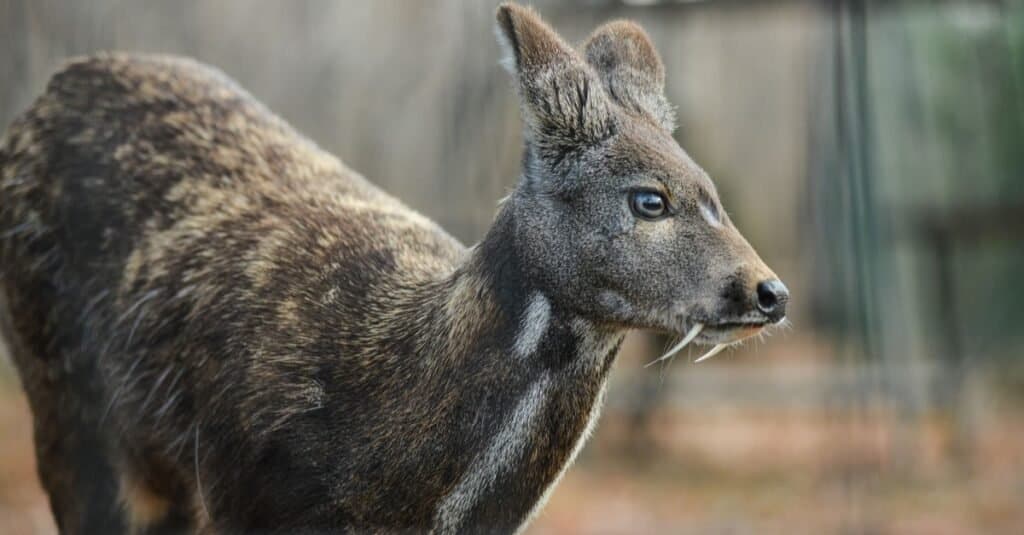
You can only bring some deer parts into Arizona if you hunt out-of-state.
©Suvorov_Alex/Shutterstock.com
CWD is a deadly disease affecting all types of deer, elk, and other cervids. It’s caused by a mutated protein called a prion that damages the brain. It takes a few years for symptoms to start as the brain slowly becomes damaged. However, it is always deadly and has no cure.
Currently, the disease is present in 29 states. However, it is not currently found in Arizona. It is present in a few neighboring states, though.
You can only bring some deer parts into Arizona if you hunt out-of-state. These parts included packaged meat, taxidermy heads, cleaned skills, and teeth. Basically, that animal must be completely processed before it is brought into the state.
You can volunteer to have your deer tested by the state for free. All you have to do is bring the head of a recently harvested deer to a department office. Those hunting in adjacent counties to other infected states are particularly encouraged to provide samples.
Report any deers that show signs of sickness.
Common Violations
While there are quite a few regulations, there are some that represent a large portion of all hunting-related charges in the state.
One of these is taking wildlife with a prohibited device. Be sure that you’re using the correct weapon for your season and that the weapon meets all criteria. You can also not shoot within 440 yards from a building or residency. This is quite far, so be sure that you are decently far away from any building before shooting.
Hunters are absolutely required to clean up any trash or shell casings. Leaving anything behind constitutes as littering, which can lead to serious fines. Check local regulations on carcass disposal, as well.
Shooting across a road is illegal. Sadly, this is another commonly ignored violation. Furthermore, you may also be charged with spotlighting if cars are illuminating the deer (even briefly).
Fines and License Revocation
You can have your license revoked for up to five years by being convicted of nearly any hunting offense. For instance, carelessly using firearms, destroying livestock, littering while hunting, and waste of game meat all fit into this category. Additional convictions can lead to your license being revoked for longer.
The state has also set minimum civil values for each species. For a white-tailed deer, the minimum value is over $3,000. If you unlawfully harm or wound a deer, you may have to pay the state its value. Bigger deers and bucks are worth more.
There is a minimum reward of $500 for anyone who reports poaching of a deer or other big game animal.
Up Next
The photo featured at the top of this post is © Tom Reichner/Shutterstock.com
Sources
- Arizona Game and Fish Department, Available here: https://azgfd-portal-wordpress-pantheon.s3.us-west-2.amazonaws.com/wp-content/uploads/archive/2022-Arizona-Hunting-Regulations_221116.pdf
Thank you for reading! Have some feedback for us? Contact the AZ Animals editorial team.




